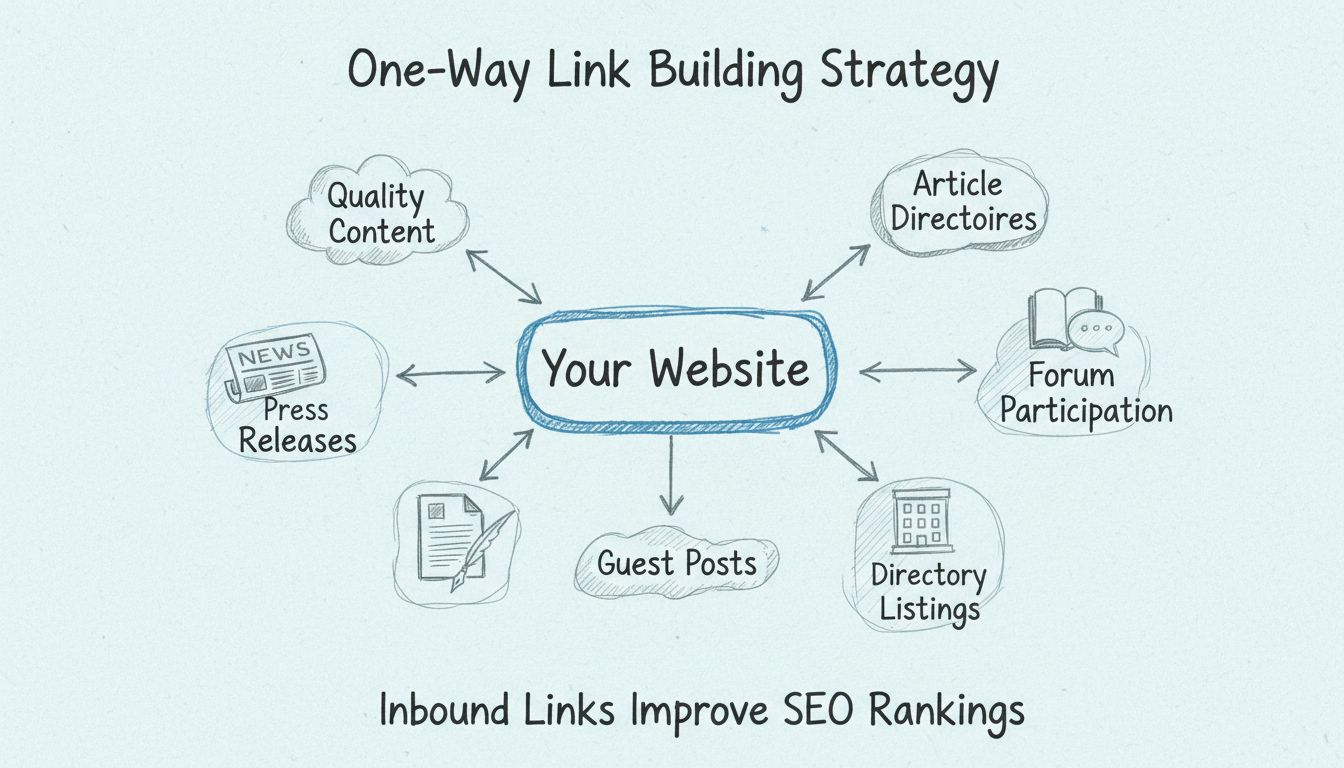
How Can I Get One-Way Links? Complete Guide to Building Quality Backlinks
Learn proven strategies to get one-way links through quality content, article directories, press releases, and forum participation. Discover the best practices ...
One-way links are valuable backlinks from other websites to yours, boosting SEO by demonstrating your site’s authority and trustworthiness.
In the digital realm of search engine optimization (SEO), one-way links, also known as inbound links or backlinks, are crucial components that significantly influence a website’s ranking on search engine results pages (SERPs). One-way links are hyperlinks pointing from one website to another without any reciprocal link in return. Unlike reciprocal links , which involve a mutual exchange, one-way links flow in a single direction, suggesting a more organic and authentic endorsement of content.
One-way links are essentially hyperlinks from an external website to your site without expecting a backlink in return. These links serve as a vote of confidence from one site to another, indicating to search engines that the content on the receiving site is valuable, trustworthy, and relevant. The presence of one-way links is perceived as a natural endorsement, enhancing the credibility and authority of the linked website in the eyes of search engines like Google.
One-way links are highly valued in SEO because they are seen as a genuine signal of quality. Unlike reciprocal links, which can sometimes be perceived as manipulative if overused, one-way links are harder to obtain and thus carry more weight. Search engines prioritize websites with robust backlink profiles, interpreting numerous high-quality one-way links as an indicator of valuable and authoritative content.
While both one-way and reciprocal links can benefit a website’s SEO, they differ in their implications and strategic use.
Reciprocal links involve an exchange where two sites agree to link to each other. While they can increase link popularity, excessive use may be flagged by search engines as part of link schemes, potentially harming SEO efforts.
One-way links are considered more credible and valuable because they are not based on a quid pro quo arrangement. They reflect a genuine endorsement of content quality and relevance.
In the context of affiliate marketing and affiliate software, one-way links play a pivotal role in enhancing the online visibility and credibility of affiliate websites . High-quality one-way links can drive more traffic to affiliate sites, increasing the likelihood of conversions and sales.
Acquiring one-way links requires a strategic approach focused on quality and relevance. Here are some effective methods to build one-way links:
Once you have acquired one-way links, it is crucial to monitor and maintain them to ensure they continue to benefit your website’s SEO.
Perform regular audits of your backlink profile to identify and disavow any harmful links that may negatively impact your SEO. Use tools like Google Search Console or third-party SEO tools to keep track of your backlinks .
Focus on the quality of the linking sites. Links from authoritative, relevant, and high-traffic websites provide more value than links from low-quality sites.
If you identify links that may be harmful to your SEO efforts, consider using Google’s Disavow Tool to prevent these links from affecting your site’s ranking.
The best way to get one-way links is to have good content. Other ways include submitting articles and press releases to article directories, and participating in online forums.The best way to get one way links is to have good content. Other ways include submitting articles and press releases to article directories, and participating in online forums.
A one-way backlink is a link from one website to another that is not reciprocated. One-way backlinks are important for SEO because search engines view them as signs of the quality and relevance of the linking website.
Discover effective strategies to build high-quality one-way links and enhance your website’s authority and rankings.

Learn proven strategies to get one-way links through quality content, article directories, press releases, and forum participation. Discover the best practices ...

Learn what one-way backlinks are and why they're crucial for SEO. Discover how one-way links boost rankings, build authority, and compare to reciprocal links. E...
Inbound linking improves a website’s rank and is a crucial part of successful SEO. Learn what inbound links are, their importance for affiliate marketers, and h...
Cookie Consent
We use cookies to enhance your browsing experience and analyze our traffic. See our privacy policy.